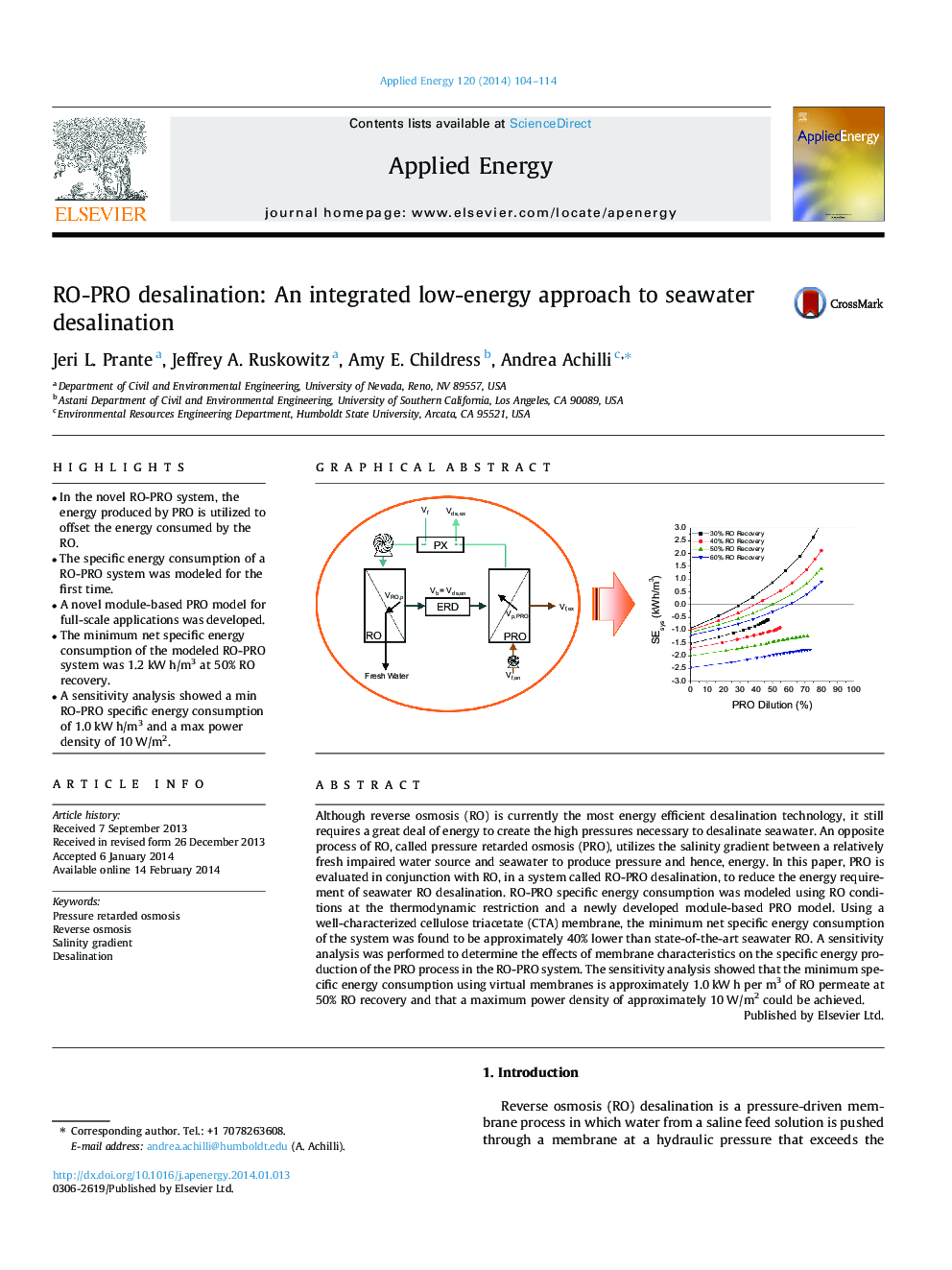| Article ID | Journal | Published Year | Pages | File Type |
|---|---|---|---|---|
| 242770 | Applied Energy | 2014 | 11 Pages |
•In the novel RO-PRO system, the energy produced by PRO is utilized to offset the energy consumed by the RO.•The specific energy consumption of a RO-PRO system was modeled for the first time.•A novel module-based PRO model for full-scale applications was developed.•The minimum net specific energy consumption of the modeled RO-PRO system was 1.2 kW h/m3 at 50% RO recovery.•A sensitivity analysis showed a min RO-PRO specific energy consumption of 1.0 kW h/m3 and a max power density of 10 W/m2.
Although reverse osmosis (RO) is currently the most energy efficient desalination technology, it still requires a great deal of energy to create the high pressures necessary to desalinate seawater. An opposite process of RO, called pressure retarded osmosis (PRO), utilizes the salinity gradient between a relatively fresh impaired water source and seawater to produce pressure and hence, energy. In this paper, PRO is evaluated in conjunction with RO, in a system called RO-PRO desalination, to reduce the energy requirement of seawater RO desalination. RO-PRO specific energy consumption was modeled using RO conditions at the thermodynamic restriction and a newly developed module-based PRO model. Using a well-characterized cellulose triacetate (CTA) membrane, the minimum net specific energy consumption of the system was found to be approximately 40% lower than state-of-the-art seawater RO. A sensitivity analysis was performed to determine the effects of membrane characteristics on the specific energy production of the PRO process in the RO-PRO system. The sensitivity analysis showed that the minimum specific energy consumption using virtual membranes is approximately 1.0 kW h per m3 of RO permeate at 50% RO recovery and that a maximum power density of approximately 10 W/m2 could be achieved.
Graphical abstractFigure optionsDownload full-size imageDownload as PowerPoint slide
